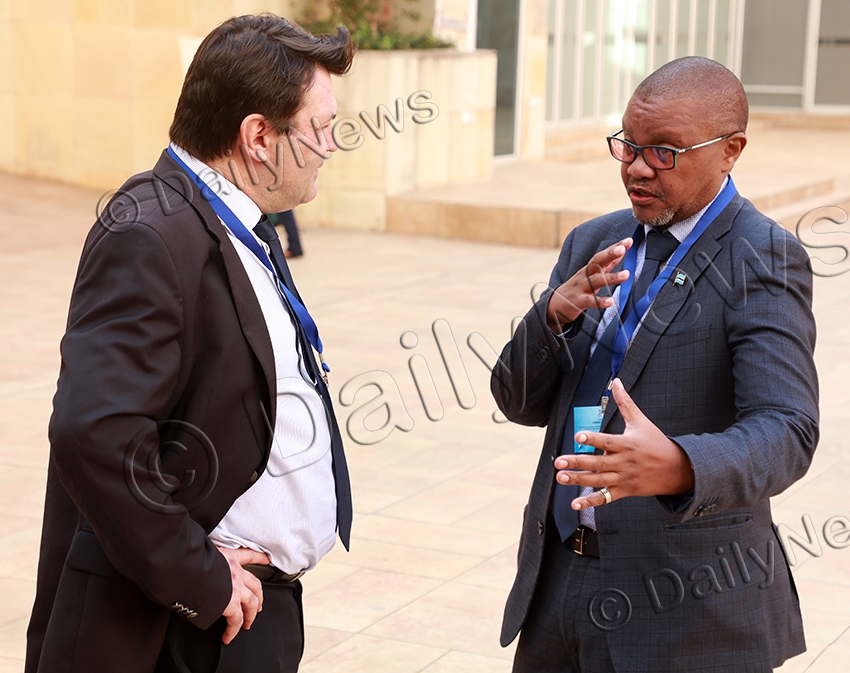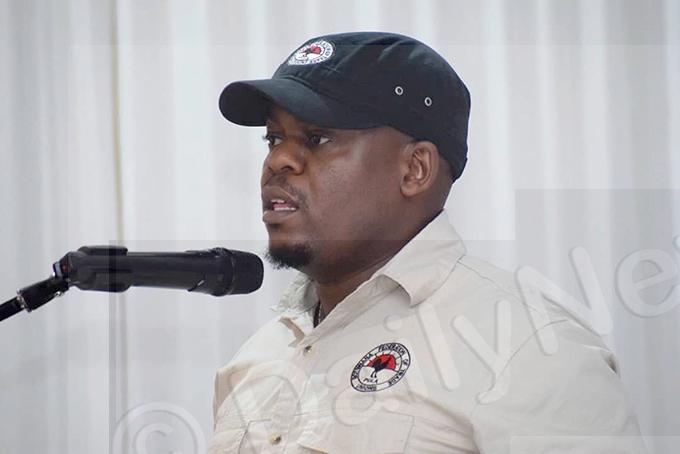International assistance vital in meeting resolution
22 May 2024
Although the implementation of the United Nations Security Council (UNSC) Resolution 1540 is a responsibility of States, assistance from the international community continues to play an important role in enhancing capacities needed to meet their 1540-related obligations.
This was said by the coordinator of the Group of Experts on the UN Security Council Committee on Resolution 1540, Mr David Theard in Gaborone on Tuesday during a three-day workshop meant to help Botswana strengthen border controls as one way of adhering to the requirements of the resolution.
The UNSC Resolution 1540, adopted in April 2004, seeks to prevent proliferation of weapons of mass destruction and their delivery systems by non-state actors.
Mr Theard urged the Resolution 1540 Committee to continue strengthening its role in facilitating technical assistance for implementation of the resolution by engaging actively in matching efforts and requests for assistance.
“It is our hope that this workshop will contribute towards this aim. The unanimous adoption of Resolution 1540 in 2004 was an important and timely measure in international efforts aimed at preventing proliferation of weapons of mass destruction and their means of delivery to non-state actors,” he said.
Mr Theard said that since its adoption 20 years ago, Resolution 1540 has become a vital component of the global non-proliferation architecture, and that it does not conflict with or alter rights and obligations of state parties to the existing international disarmament and non-proliferation instruments but instead, establishes additional obligations to address existing gaps in current international instruments.
He said that states should therefore be assured that full implementation of the resolution does not hamper international cooperation in trading with materials, equipment and technology destined for peaceful purposes.
He said that it was important that Resolution 1540 became a global agreement since threat posed by non-state actors, including those with terrorist purposes acquiring and using weapons of mass destruction does not recognize borders, hence crucial that every country should be involved.
Political affairs officer at the United Nations Office for Disarmament Affairs (UNODA), Ms Natasha Carvalho-Malekane said that Resolution 1540 was adopted against the background of growing global concern about the spread of terrorism, transnational crime and illicit trafficking networks.
“These threats have not only persisted but evolved, further underlining the importance of continued efforts to effectively implement the resolution at the national, regional and global levels,” she said.
She cautioned that as Chemical, Biological, Radiological and Nuclear (CBNR) weapons proliferation risks evolve, Africa has to also evolve its dependence on their peaceful applications to advance health, food security and sustainable development, with one way being to develop local capacity to reduce over-reliance on imports.
She said Botswana’s voluntary national implementation action plan on Resolution 1540 sets a number of targets such as strengthening border and export controls in line with the provisions of the resolution.
Ms Carvalho-Malekane said that would help improve border and export controls to prevent illicit trafficking of nuclear, chemical and biological materials that could be used to develop weapons by terrorists and other immoral entities.
She said the workshop came handy in increasing awareness and ensure a shared understanding among stakeholders. under Resolution 1540 and other non-proliferation regimes, particularly as they related to border and export control.ENDS
Source : BOPA
Author : Olekantse Sennamose
Location : GABORONE
Event : Workshop
Date : 22 May 2024






